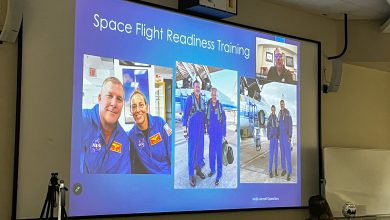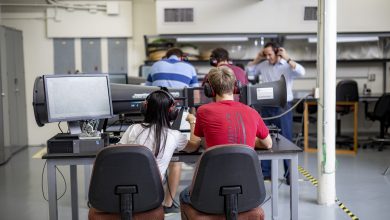Professor Conducts Cosmic Ray Acceleration Research under $434,000 NASA Grant
MELBOURNE, FLA. — Ming Zhang, Ph.D., Florida Institute of Technology professor of physics and space sciences, has received a three-year, $434,000 NASA grant
to study the outer heliosphere. The heliosphere is a “bubble” in the interstellar medium filled with magnetized plasma primarily emanating from the Sun. It
extends from the Sun’s upper atmosphere to well beyond the planets.
“Understanding the structure and dynamics of the heliosphere is a fundamental goal of space scientists. It provides an environment for Earth and its
magnetosphere in space and through it we can understand how the Sun interacts with the local interstellar medium,” said Zhang. He and this team will use
cosmic rays to probe the outer heliospheric environment.
Knowledge of the space radiation environment is the key to keeping astronauts safe from hazardous space radiation. This will help predict activity in the
near-Earth space radiation environment, a problem related to space weather forecasting.
Working with Zhang at Florida Tech is Hamid Rassoul, Ph.D., professor of physics and space sciences. Also on the team, Gang Qin, Ph.D., of the Chinese
Academy of Science, and Nikolai Pogorelov Ph.D., from the University of Alabama in Huntsville will apply their theoretical tools and knowledge in a related
investigation.
“The fundamental physics learned from the heliosphere can apply to other stars and the interstellar medium of the galaxy. This makes these studies
important to many phenomena in high-energy astrophysics,” added Rassoul.
Florida Tech grants bachelor’s degrees in physics, pre-professional physics, space sciences, with options in solar, Earth, and planetary, astronomy and
astrophysics, and astrobiology, and master’s and doctoral degrees in physics or space sciences.




